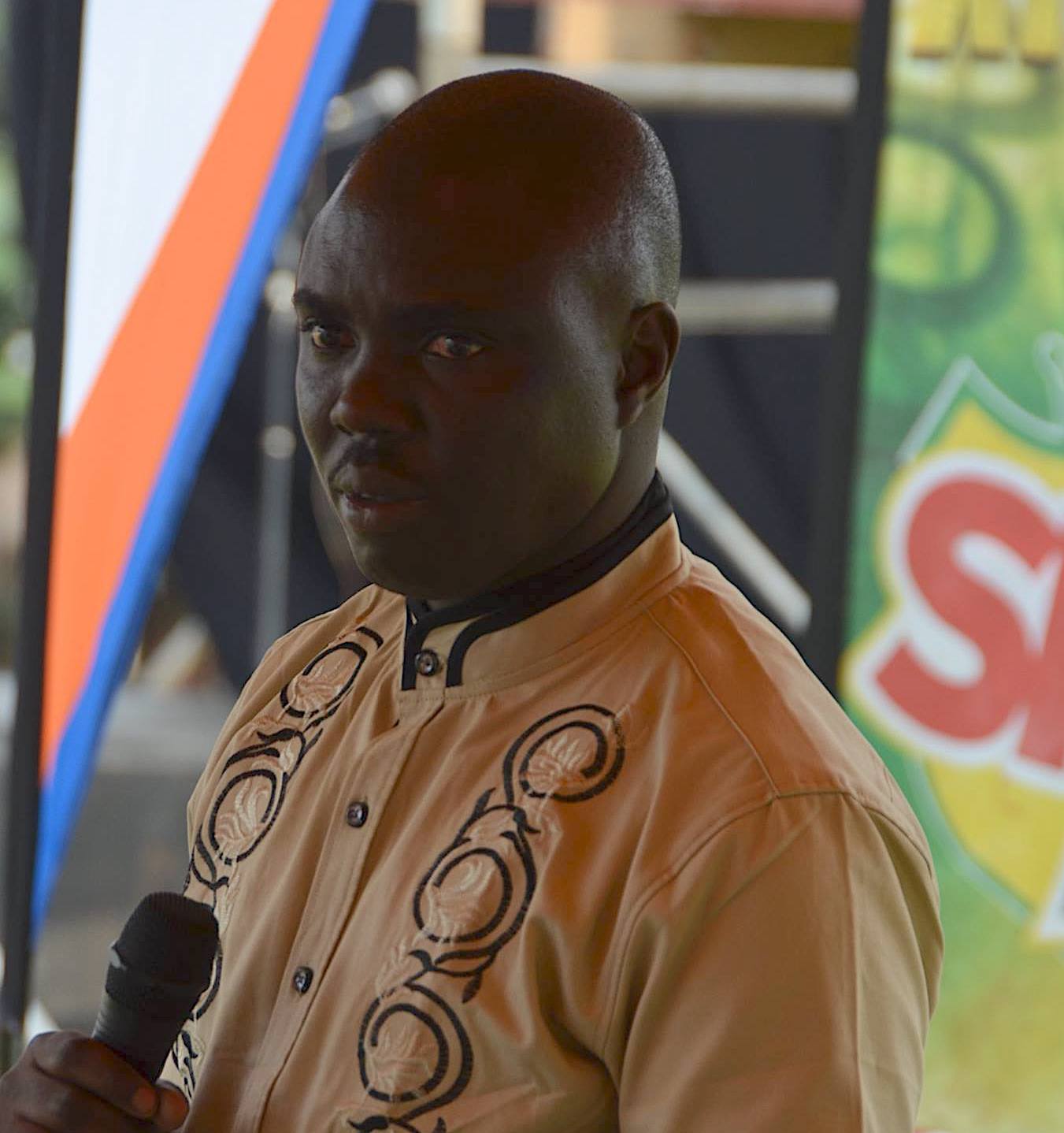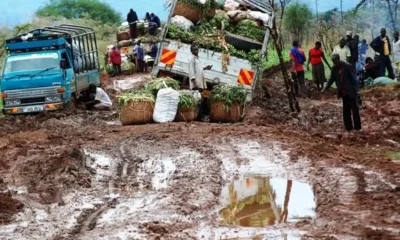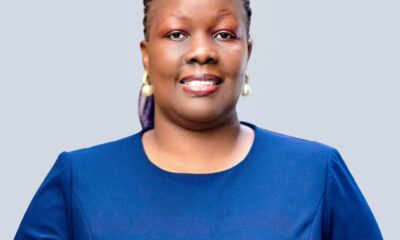Opinions
Monday Akol Amazima: East Africa’s Political Dynasties
Kenyans used the phrase “Political Dynasties” in the 2022 general elections to refer to families of former prominent politicians who have taken after their parents to also gain political influence.
The contest was mainly between the hustlers and the dynasties. A look at the political dynasties of the three founding East African Community (EAC) countries of Uganda, Kenya and Tanzania, it is obvious that Kenya’s founding fathers have had their children dominate the political scene.
Kenyatta Family
Johnson Kamau, later to be known as Jomo Kenyatta, was the founding president of Kenya. Right from independence in 1963, he led Kenya up to 1978 when he died. He was the first African president to die in power. Years later, his son, Uhuru Muigai wa Kenyatta, became the fourth president.
His ascending to power, by and large, was facilitated by the legacy of his father and family. During his time, Jomo Kenyatta empowered his Kikuyu tribesmen so much so that they became a serious power and influential tribe in Kenya.
Odinga Family
Jaramogi Oginga Odinga was the man who led the struggle for the independence of Kenya. He was the first vice president of independent Kenya, and upon falling out with Jomo Kenyatta, became the founding father of opposition politics in Kenya. His son, Raila Amolo Odinga, has taken his footsteps.
Perhaps this explains why he is Africa’s maverick opposition leader who has survived many tides to keep afloat in the tribal politics of Kenya. He is one such politician who has kept his support base intact even when he has never become president. Most opposition leaders worldwide lose their support base as the government in power bribes them off or intimidates them into submission. His participation in any election in Kenya has attracted the world to follow the political events in Kenya.
Moi Family
Daniel Toroitich Arap Moi was the second president of Kenya. In the history books, he is the president who led Kenya for the longest time. His period in power from 1978 to 2002 made his Kalenjin kinsmen also become an influential tribe in Kenya. When he left the leadership of the founding party, the Kenya African National Union (KANU), the leadership of the party after some time, eventually went back to his son, Gideon Moi.
The Moi family is equally not a family you can write off when it comes to the politics of Kenya. Gideon Moi has been a Member of Parliament and Senator at different times. Equally, he is one of the people who are rumoured to have their eyes on the presidency of Kenya. The Moi family is one of the richest families in Kenya and Africa, for that matter.
In Tanzania, political dynasties have played out in the semi-autonomous island of Zanzibar. On mainland Tanzania, previously known as Tanganyika, political dynasties have yet to gain influence in the politics of the country.
Karume Family
The political dynasties in Zanzibar that shook and rocked events are: Sheikh Abeid Amani Karume; he was the first president of Zanzibar and later the first vice president of Tanzania in 1964. He led the island from 1964 to 1972 when he was killed by one of his escorts. His son, Amani Abeid Amani Karume, became the 6th president of Zanzibar from 2000 to 2010. The Karume family is such an influential family in Zanzibar and will always be part of the key decision-makers in the politics of the island.
Mwinyi Family
Ali Hassan Mwinyi was the third president of Zanzibar from 1984 to 1985. Upon the retirement of President Mwalimu Julius Kambarage Nyerere, he became the second president of Tanzania. His presidency marked the introduction of the liberal economy, and for this, he was nicknamed Mzee Ruksa. Ruksa is Kiswahili for “granting permission”.
In other words, he granted permission to Tanzanians to own businesses and assets, which was a departure from under Nyerere, where the state almost owned everything. The current and eighth president of Zanzibar, Hussein Mwinyi, is the son of Mzee Ruksa, who has already been endorsed by the ruling Chama Cha Mapinduzi (CCM), to run for his second and last term. Observers say that, all along, he has been groomed for leadership, and like his father, after serving the people in Zanzibar, chances are that at one point, he will lead Tanzania.
Museveni Family
In Uganda, the growing influence of General Muhoozi Kainerugaba, as the most eligible heir to the throne, brings to life the talk of the emerging political dynasties in Uganda, and these are:
Yoweri Kaguta Tibuhaburwa Museveni has led Uganda since 1986, and therefore, entered the book of records as one of the longest-serving presidents on the African Continent and in the world. The Museveni family prides on having the three most accomplished military generals in Uganda with Pan African credentials. General Museveni, General Salim Sale a.k.a Caleb Akandanahwo and General Muhoozi form Uganda’s military cream de la cream.
As age is catching up with Museveni and his younger brother Sale, this implies that General Muhoozi becomes the man to watch insofar as keeping the legacy of the Kaguta family is concerned. This is what makes Muhoozi loved and hated, in the same measure. From Kyankwanzi, where it was reported that at the Resident District Commissioners’ (RDCs) retreat, participants were advised and encouraged to be ready to market Muhoozi in the event President Museveni bows out.
Muhoozi’s Patriotic League of Uganda (PLU), a political pressure group, is seen as one that is most likely going to influence the National Resistance Movement (NRM) primaries. The Minister of Constitutional Affairs, Nobert Mao, is on record as saying that PLU will have a big influence in the outcome of the 2026 General Elections.
Obote Family
Dr.Apolo Milton Obote was the first Prime Minister of Uganda and later the first Executive President. He became president twice, and in all cases, he was overthrown by the army. He died in exile in 2005 and was brought to Uganda for burial, ending his exile.
His Uganda Peoples’ Congress (UPC) party participated in the general election of 2006, and his wife, Mama Miria Kalule Obote, flew the UPC flag and therefore became the first Ugandan woman in Africa to run in the presidential elections. Currently, UPC is under the leadership of his son, Jimmy Akena, who is also gearing up to participate in the next general election as a presidential candidate. In his own words, Akena says he is ready to defeat Museveni in the 2026 General Elections.
Mutesa Family
Kabaka Edward Mutesa II, the first and only non-executive President of Uganda, is one of the most influential kings of Buganda. He was overthrown by his Prime Minister, Dr. Apolo Milton Obote, who was supported by the army. Mutesa fled to exile in London, where he lived and later died.
In 1993, his son, Ronald Muwenda Mutebi, was crowned the Kabaka of Buganda and remains one of the most loved and influential traditional leaders on the African Continent. Buganda is so strategically positioned in Uganda’s politics that, whoever is the president of Uganda, cannot ignore having a mutual political relationship with the reigning Kabaka of Buganda.
Other presidents of Uganda, like General Tito Okello Lutwa and Field Marshal Idi Amin, have yet to have sons or daughters in the national leadership, although most of them are into Parliamentary and local Government elective politics.
The author is a teacher, journalist and Pan African
Comments


















